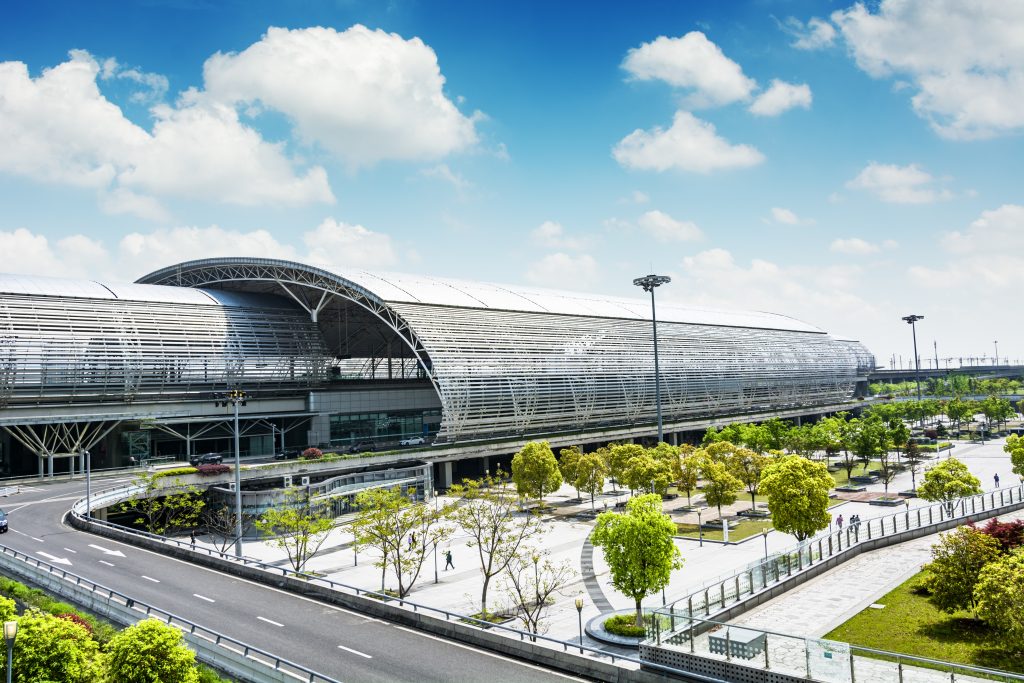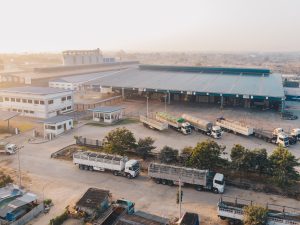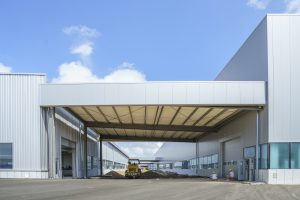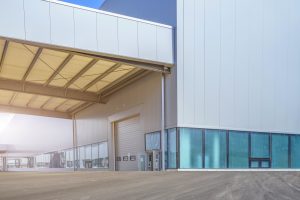As environmental consciousness grows and the demand for sustainable development rises, strip malls are evolving to meet the expectations of both businesses and customers. Sustainable strip malls not only benefit the environment but also reduce operational costs and attract eco-conscious tenants and consumers. Developers are increasingly embracing green building practices in their retail spaces, positioning strip malls as profitable, eco-friendly community hubs.
In this article, we’ll explore the key strategies and benefits of integrating sustainable practices into strip mall design, helping developers create spaces that are environmentally responsible and financially viable.
The Importance of Sustainability in Strip Malls
Sustainable design is no longer just a trend; it is an essential aspect of modern construction that enhances profitability and environmental stewardship. Strip malls, as community-centric retail spaces, are ideal candidates for incorporating green practices that benefit tenants, customers, and the planet.
Why Sustainability Matters
Incorporating sustainable building practices into strip malls offers numerous advantages:
- Reduced Operating Costs: Energy-efficient systems and eco-friendly materials lower energy bills and maintenance expenses.
- Tenant Attraction and Retention: Many businesses and customers prefer eco-conscious spaces, making sustainable strip malls a draw for high-quality tenants.
- Environmental Impact: Sustainable strip malls help reduce carbon footprints, contributing to cleaner air, less waste, and more responsible use of resources.
- Enhanced Brand Image: Being recognized as an environmentally responsible developer or property owner can boost your reputation and attract more businesses and consumers.
Energy Efficiency in Sustainable Strip Malls
Energy efficiency is a cornerstone of sustainable building practices. Strip malls, which often have large open spaces and operate for long hours, can benefit significantly from energy-efficient designs.
Energy-Efficient Lighting
Lighting accounts for a significant portion of energy use in strip malls. By installing energy-efficient LED lighting systems, developers can drastically cut energy consumption. These lights not only last longer but also provide better quality illumination, improving the shopping experience for customers.
Additionally, incorporating motion-sensor lighting in common areas such as hallways and parking lots can help reduce unnecessary energy use.
Solar Power Integration
Solar energy is a renewable power source that is gaining traction in retail developments. Solar panels can be installed on the roofs of strip malls to harness the sun’s energy, providing clean, renewable electricity. This reduces dependency on the local power grid and lowers energy costs over time.
At PSCC Contracting Company, we help developers integrate solar power systems into their strip mall projects, creating sustainable and cost-effective retail spaces.
Eco-Friendly Building Materials
The materials used in the construction of strip malls have a direct impact on sustainability. By choosing eco-friendly, durable, and sustainable materials, developers can create retail spaces that are better for the environment and cost-efficient in the long term.
Sustainable Concrete and Steel
Concrete and steel are essential building materials in most strip mall projects, but their production is energy-intensive. However, newer, greener alternatives like recycled concrete and steel are becoming more widely available. These materials help reduce the environmental impact of the construction process while maintaining the strength and durability required for commercial buildings.
Recycled and Renewable Materials
Using recycled materials like reclaimed wood or renewable materials such as bamboo in the interior design and finishes of strip malls can add aesthetic appeal while supporting sustainability. Additionally, low-VOC (Volatile Organic Compound) paints and finishes improve air quality inside the mall, benefiting both tenants and customers.
Water Conservation Practices in Strip Malls
Water is another critical resource that should be conserved in strip mall developments. Sustainable water management not only lowers utility costs but also helps protect local water supplies.
Rainwater Harvesting Systems
Rainwater harvesting systems are an innovative solution that allows developers to collect and reuse rainwater for non-potable purposes, such as irrigation for landscaping or cleaning common areas. These systems can reduce a strip mall’s reliance on municipal water supplies and help create a more sustainable operation.
Water-Efficient Landscaping
Sustainable landscaping practices, such as using drought-resistant plants and smart irrigation systems, can significantly reduce water usage. Native plants that thrive in local climates require less water and maintenance, lowering costs for property owners and creating a more eco-friendly retail environment.
Sustainable Design for Energy Optimization
The layout and design of a strip mall can have a major impact on energy consumption. By incorporating green building principles into the design phase, developers can reduce long-term energy use.
Natural Lighting and Ventilation
Utilizing natural light in common areas such as walkways, food courts, and entrances can reduce the need for artificial lighting during daylight hours. Skylights, large windows, and strategically placed openings allow sunlight to illuminate indoor spaces while reducing energy consumption.
Similarly, natural ventilation systems can help regulate indoor temperatures, reducing reliance on HVAC systems and lowering energy costs. This is particularly beneficial in regions with moderate climates where air conditioning may not be required year-round.
Cool Roofs and Insulation
Cool roofs, which are designed to reflect more sunlight and absorb less heat, help reduce cooling costs in warm climates. In addition, energy-efficient insulation materials can help maintain comfortable indoor temperatures by minimizing heat exchange between the interior and exterior. Both of these features contribute to a more sustainable strip mall that is less expensive to operate.
Waste Management and Recycling
Reducing waste and encouraging recycling within strip malls is another important step toward sustainability. Offering convenient recycling bins in food courts, public spaces, and near tenant loading zones can help reduce landfill waste. Developers can also establish partnerships with local waste management companies to implement recycling programs for tenants.
Construction Waste Management
During the construction phase, adopting waste reduction strategies is crucial. By reusing materials, recycling demolition debris, and minimizing excess material orders, developers can significantly reduce the amount of construction waste generated.
At PSCC, we work with contractors to ensure that waste management is a key part of the construction process, reducing the environmental impact of building projects.
Marketing the Sustainability of Your Strip Mall
Once your strip mall is designed and constructed with sustainable practices, it’s important to communicate these efforts to potential tenants and customers. Marketing the eco-friendly aspects of the development can attract businesses that value sustainability and consumers who prefer shopping at green-friendly locations.
Tenant Attraction
Businesses that prioritize environmental responsibility often seek out retail spaces that reflect their values. Highlighting the sustainability features of your strip mall in marketing materials, such as energy-efficient systems, water conservation measures, and green certifications, can help attract tenants who share a commitment to reducing environmental impact.
Green Certifications
Achieving green building certifications, such as LEED (Leadership in Energy and Environmental Design), adds credibility to your sustainability efforts. These certifications can be a strong selling point in marketing your strip mall as a top-tier, eco-conscious development.
Why Choose PSCC for Sustainable Strip Mall Development?
At PSCC Contracting Company, we understand the importance of sustainability in modern retail spaces. We specialize in developing strip malls that integrate green building practices and energy-efficient designs to create environmentally responsible, profitable developments.
Our expertise in solar energy, eco-friendly materials, water conservation systems, and energy-efficient layouts helps developers reduce operational costs and appeal to eco-conscious tenants. By partnering with PSCC, you can create a strip mall that meets the demands of today’s environmentally aware consumers and businesses.
Build a Sustainable Strip Mall with PSCC
Sustainable strip mall development is not only better for the environment but also enhances profitability through reduced operating costs and increased tenant appeal. By incorporating energy-efficient systems, eco-friendly materials, and water conservation practices, developers can create retail spaces that are future-proof, profitable, and sustainable.







